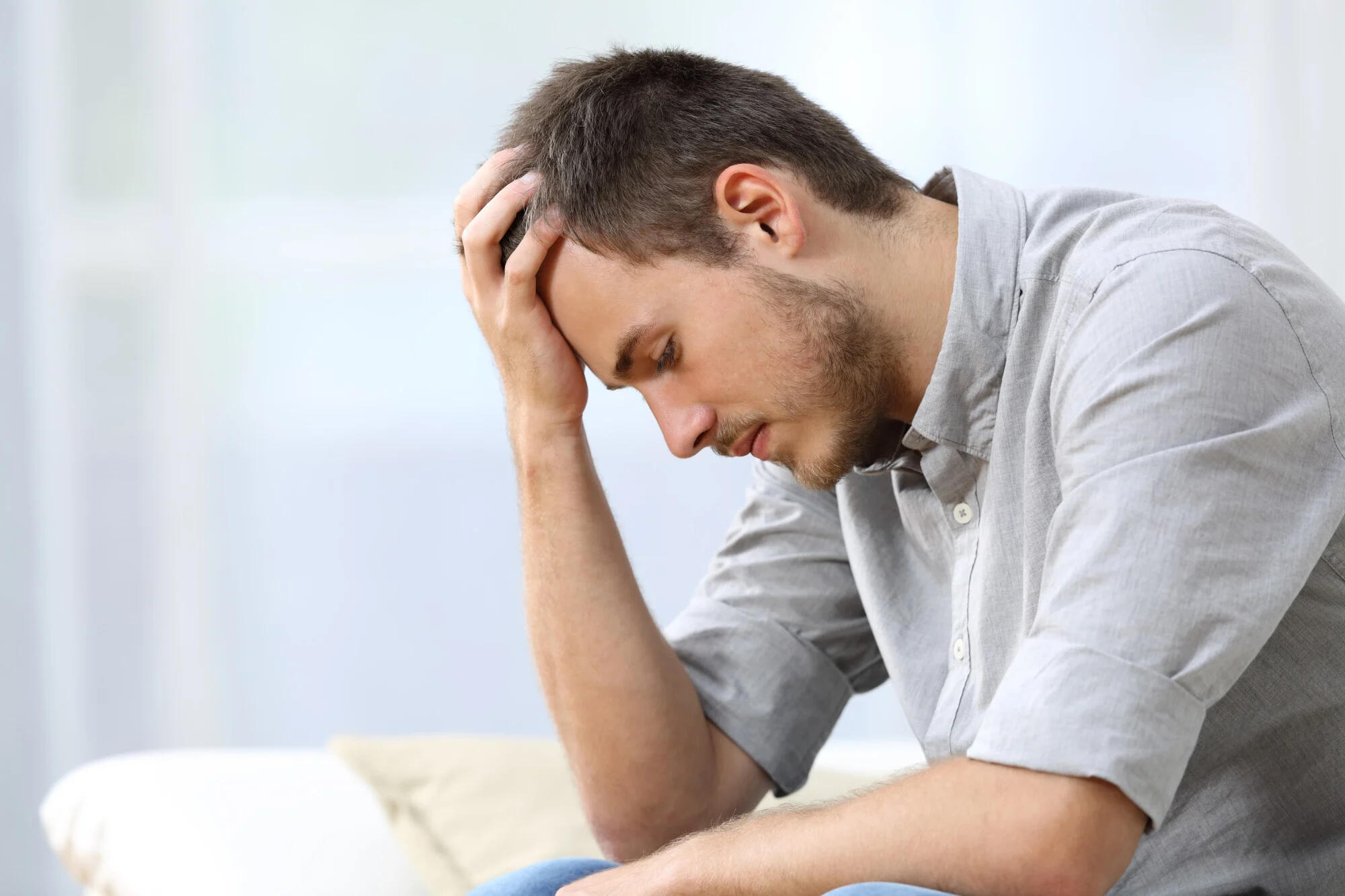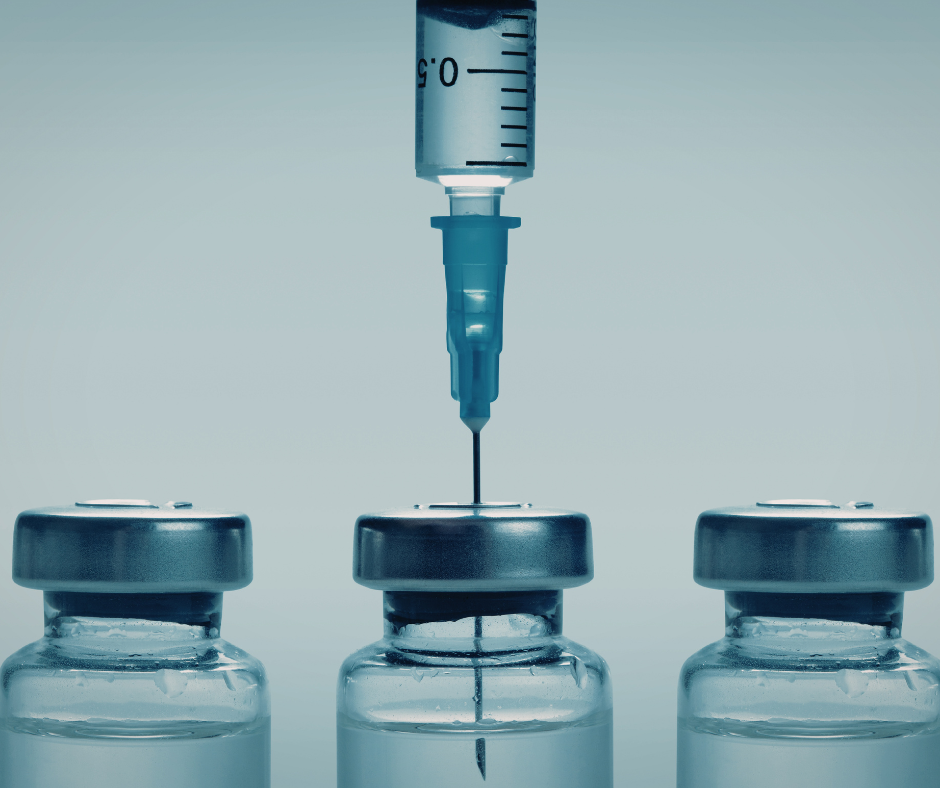Ever felt like your emotions are on a rollercoaster ride? Well, hormones might just be the unseen conductor of that wild journey. With anxiety, our body’s hormonal balance plays a crucial role in how we feel and react to situations.
Think of hormones as messengers, constantly communicating with different parts of our body, including the brain. Changes in hormone levels can impact neurotransmitters responsible for regulating mood and stress responses. This intricate dance between hormones and mental health is what makes understanding their connection so vital.
But, can low testosterone cause anxiety? Yes, low testosterone levels have been linked to increased feelings of anxiety in some individuals.
Testosterone isn’t just about muscles and masculinity. It also influences mood, energy levels, and overall well-being. Keep reading to learn more about the connection between testosterone and anxiety.
Can Low Testosterone Cause Anxiety?
When your testosterone levels dip below what’s considered normal, it can throw your body and mind off balance. And one of the ways this imbalance manifests is through heightened anxiety levels.
The connection between low testosterone and anxiety isn’t just a coincidence. There’s science backing up this link.
Testosterone plays a significant role in regulating our fight-or-flight response. When we experience stress, our body releases cortisol, the primary stress hormone. Testosterone helps to counteract cortisol’s effects, allowing us to manage stressful situations more efficiently.
But when testosterone levels are low, our body can’t balance out the excess cortisol, leading to heightened feelings of anxiety and stress. Additionally, low testosterone has been linked to insomnia and fatigue, which can also contribute to feelings of anxiety.
How to Know if Low Testosterone Is Causing Your Anxiety
Anxiety is a natural emotion that almost everyone experiences from time to time. It is a normal response to stress and can even be beneficial in certain situations. However, when feelings of anxiety become overwhelming and interfere with daily life, it may be a sign of an anxiety disorder.
Some common symptoms of anxiety include:
- Excessive worrying
- Restlessness
- Difficulty concentrating
- Irritability
- Muscle tension
- Fatigue
- Trouble sleeping
- Panic attacks
But how do you know if your hormone levels are causing your anxiety? There are some anxiety symptoms to be on the lookout for.
Avoidance of Sex
Have you noticed a decrease in your interest in intimacy lately? Low testosterone levels could play a role. When testosterone levels drop, it can lead to a lack of libido and overall disinterest in sexual activity.
Avoidance of sex might not only impact your relationship but also serve as a sign that something deeper is going on within your body. Feeling disconnected from your partner due to this avoidance can add an extra layer of stress and anxiety to the situation.
Addressing these changes openly with your partner and seeking professional help if needed is essential.
Performance Anxiety
Performance anxiety can be a real buzzkill in the bedroom. It’s like your mind and body are not on the same page when you need them to be.
Picture this: You want to get intimate with your partner. But suddenly, doubts start creeping in about your ability to perform. Your heart races, your palms sweat, and it feels like all eyes are on you.
The pressure to “perform” can lead to a vicious cycle of anxiety that affects both you and your partner. It’s frustrating because deep down, you know it does not reflect your desire or attraction towards them. It’s just those pesky hormones messing with your mojo.
Tension
Have you been feeling like you’re constantly on edge, with your muscles tight and your nerves frayed? That could be tension creeping in due to low testosterone levels. It’s like carrying a heavy weight on your shoulders all the time, making it hard to relax and unwind.
Tension caused by low testosterone can manifest physically in various ways. You might notice more headaches or jaw pain from unknowingly clenching your teeth. Your shoulders might feel perpetually hunched up, leading to discomfort and stiffness.
This tension can also affect your mental well-being, making you irritable and easily frustrated over minor things. You might find it harder to let go of stressors, leading to constant unease.
Recognizing these signs of tension is crucial in understanding how low testosterone could be contributing to your anxiety levels. By addressing the root cause, you may be able to alleviate some of this built-up tension and start feeling more at ease in both body and mind.
Difficulty Focusing
Do you find yourself struggling to concentrate on tasks that normally wouldn’t be a problem? Difficulty focusing can be a frustrating symptom of anxiety caused by low testosterone. It’s like your mind is constantly wandering, making it hard to stay on track with work or daily activities.
You might notice that you’re easily distracted by even the smallest things. This can lead to decreased productivity and increased feelings of being overwhelmed. This can impact both your personal and professional life, causing added stress and anxiety.
Erectile Dysfunction
Erectile dysfunction is a common symptom of low testosterone that can also contribute to feelings of anxiety. When testosterone levels drop, it can impact blood flow and nerve signals needed for achieving and maintaining an erection. This can lead to frustration and self-doubt, adding another layer of stress to the mix.
Experiencing difficulties in the bedroom can be unsettling and affect your confidence in various aspects of life. It’s important not to ignore these signs as they could be linked to hormonal imbalances. Seeking professional help is crucial in addressing the physical and emotional components of erectile dysfunction.
Social Withdrawal
When you’re dealing with anxiety caused by hormonal imbalances, it’s not uncommon to find yourself pulling away from social situations. You might start declining invitations from friends or avoiding gatherings altogether.
Feeling overwhelmed and fatigued due to low testosterone can make social interactions feel exhausting. It’s like your body just wants to retreat and conserve energy. This withdrawal can lead to feelings of isolation and loneliness, which further exacerbate anxiety symptoms.
If you notice yourself becoming more distant from others without any apparent reason, it could be worth exploring the connection between low testosterone and your mental well-being.
Loss of Muscle Mass
Have you noticed a decrease in your muscle mass lately? It could be more than just skipping the gym. Low testosterone levels can play a role in this frustrating issue.
Testosterone is essential for maintaining muscle strength and mass. So when it’s lacking, you might start to see changes in your physique.
Muscle loss due to low testosterone can lead to feelings of weakness and decreased stamina during physical activities. This can impact your overall quality of life and confidence in your body. Pay attention to any unexplained changes in your muscles despite consistent exercise habits.
If you’re experiencing muscle loss along with other symptoms like fatigue or mood swings, it might be worth discussing with a healthcare provider. They can help determine if low testosterone is the root cause and provide guidance on potential treatment options tailored to your needs.
Mood Swings
Mood swings can be a real rollercoaster when you’re dealing with low testosterone. One minute, you might feel on top of the world, and the next, you’re down in the dumps for no apparent reason. It’s like having your feelings go from 0 to 100 in a matter of seconds.
Imagine feeling happy and content one moment, then suddenly feeling irritable or sad without any clear trigger. These rapid shifts in mood can affect your mental well-being, relationships, and daily interactions.
Recognizing these mood swings as a potential symptom of low testosterone is crucial in addressing the root cause and seeking appropriate treatment to restore balance to both your hormones and emotions.
Treating Anxiety Caused by Low Testosterone
When treating anxiety caused by low testosterone, there are several options available. One common approach is testosterone replacement therapy (TRT).
During this treatment, synthetic testosterone is administered to bring levels back to normal. This can help alleviate symptoms of anxiety and improve overall well-being.
In addition to TRT, lifestyle changes can also play a significant role in managing anxiety related to low testosterone. Exercise has been shown to boost testosterone levels and reduce feelings of anxiety naturally.
Counseling or therapy can be beneficial for addressing any psychological effects of low testosterone-induced anxiety. Talking to mental health professionals can provide valuable support and coping strategies.
It’s important to consult with a healthcare provider before starting any treatment plan for anxiety related to low testosterone. They can help determine the best course of action based on your needs and medical history.
Online Treatment for Low Testosterone
Can low testosterone cause anxiety? Yes.
The connection between hormones and mental health is complex. But addressing any underlying hormonal imbalances can make a significant difference in managing anxiety symptoms.
Are you ready to find out if your testosterone levels could be the cause of your anxiety? Evolve Telemed provides exceptional care and safe and effective treatments. You can get expert hormone health care with the click of a button.
It’s easy to get started. Just fill out our intake questionnaire and schedule an appointment.






